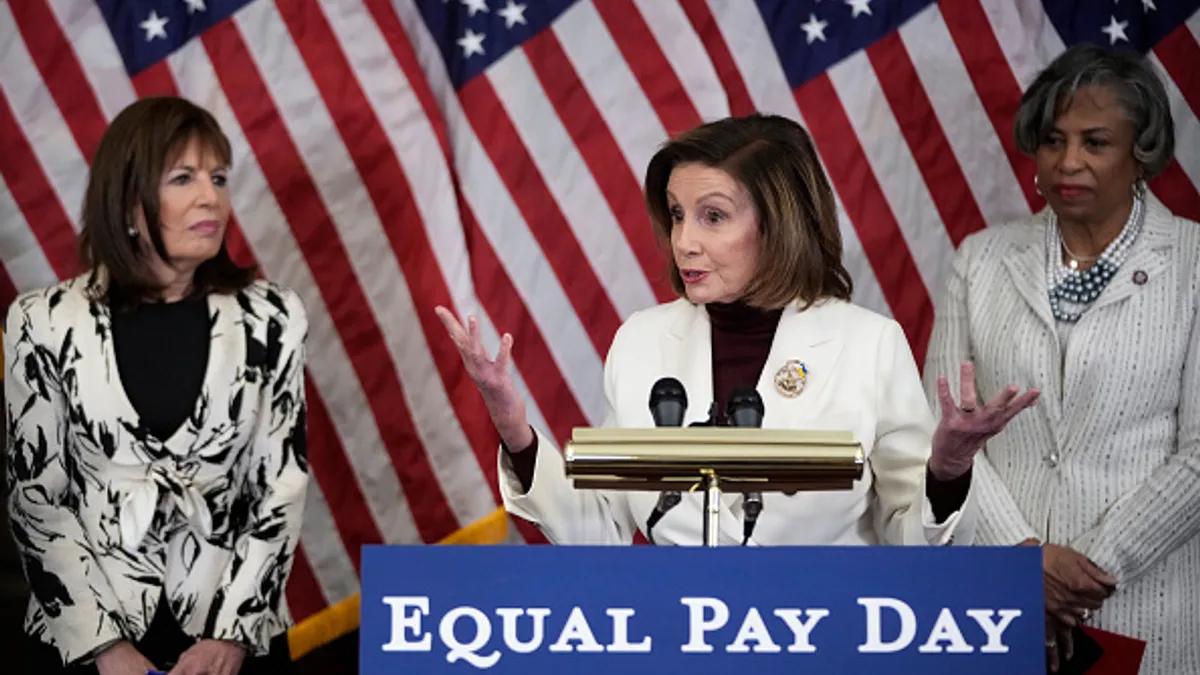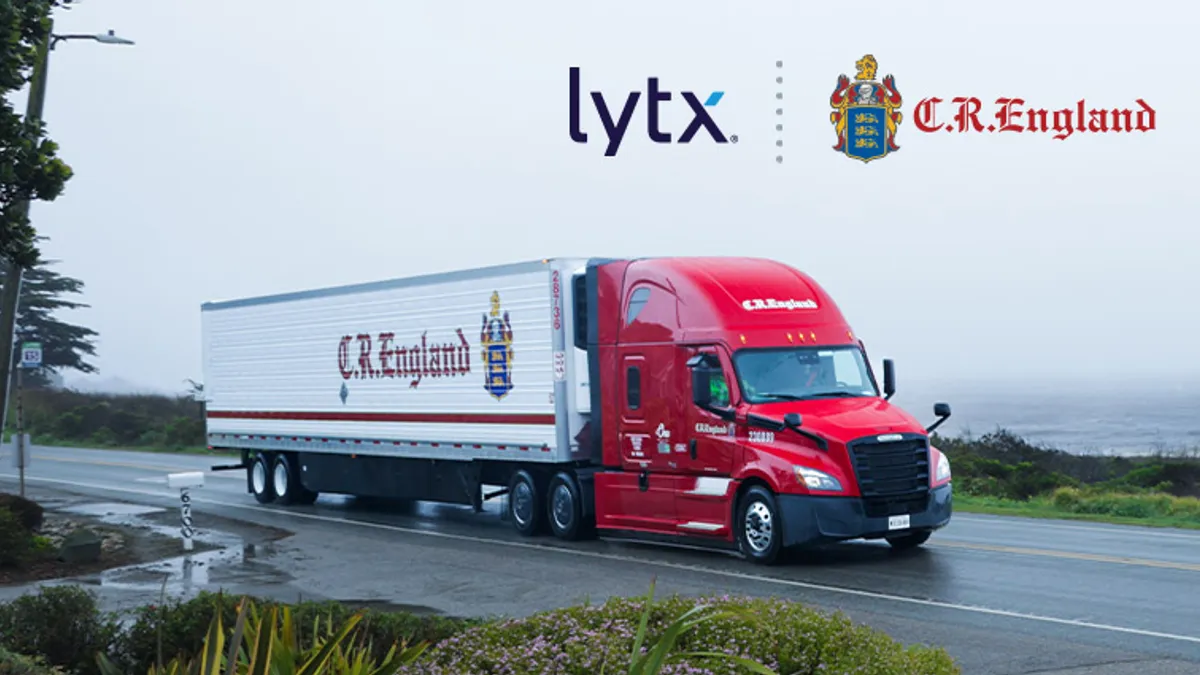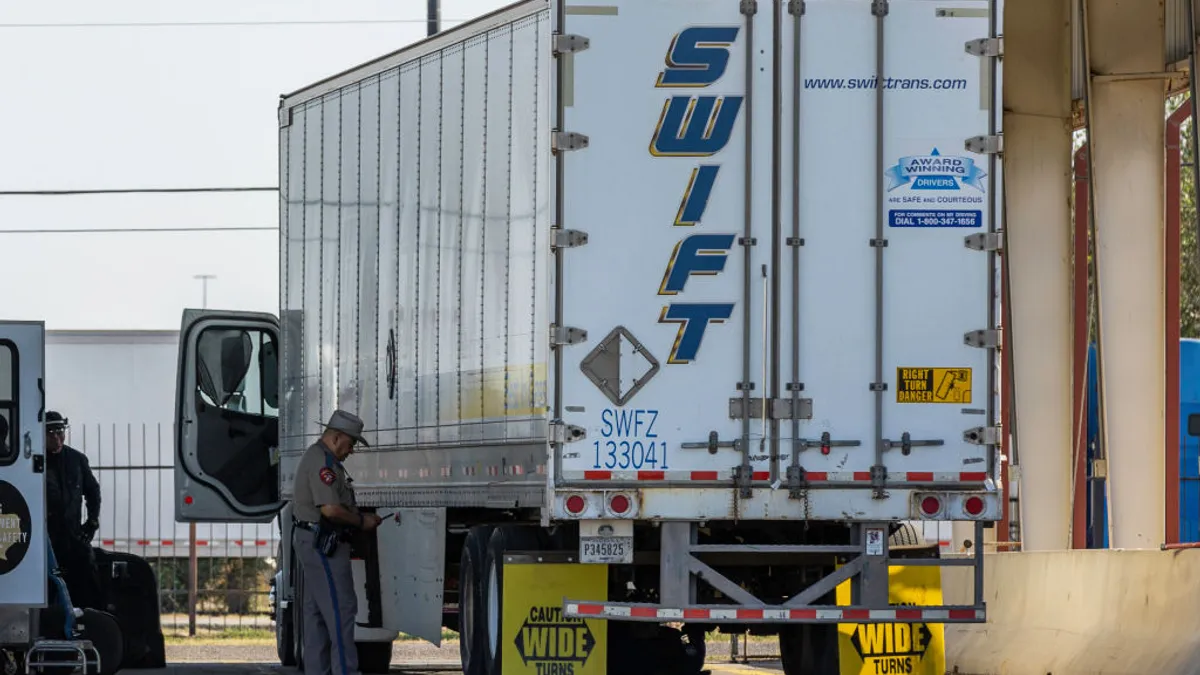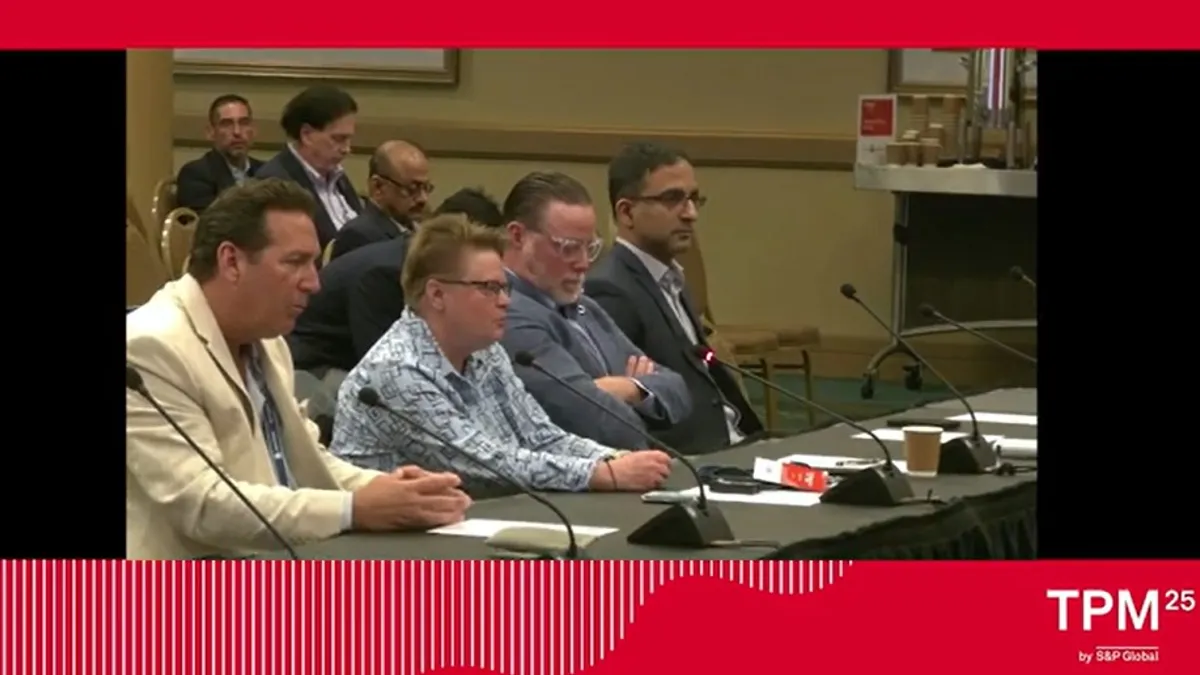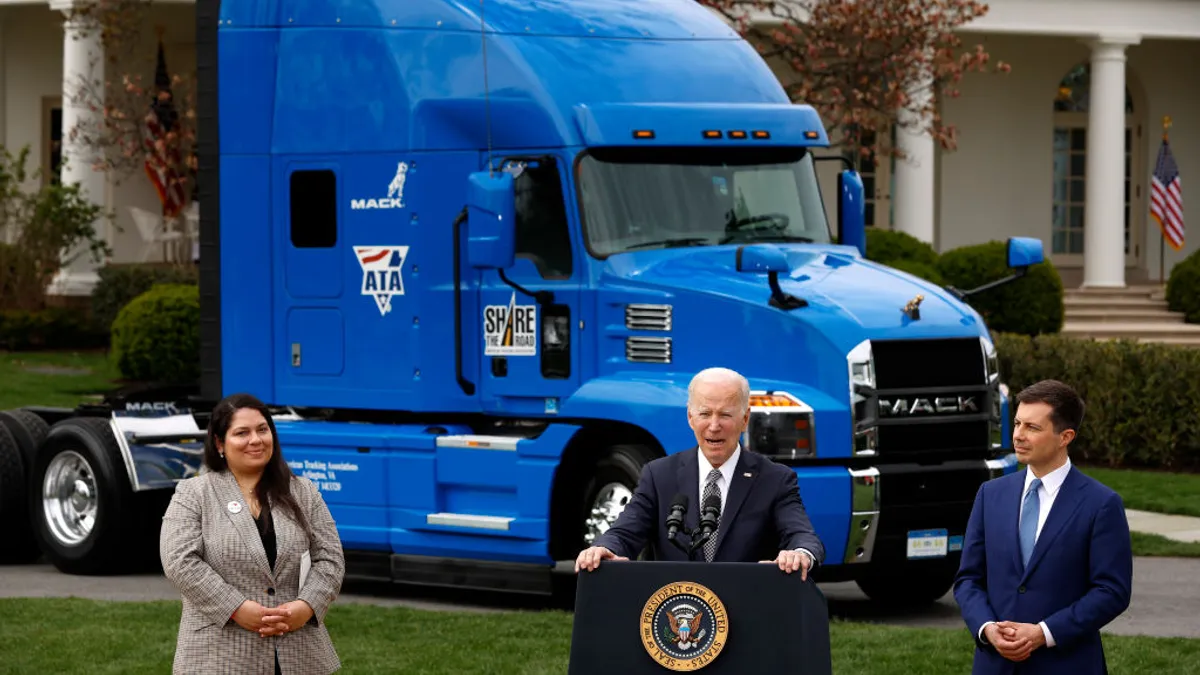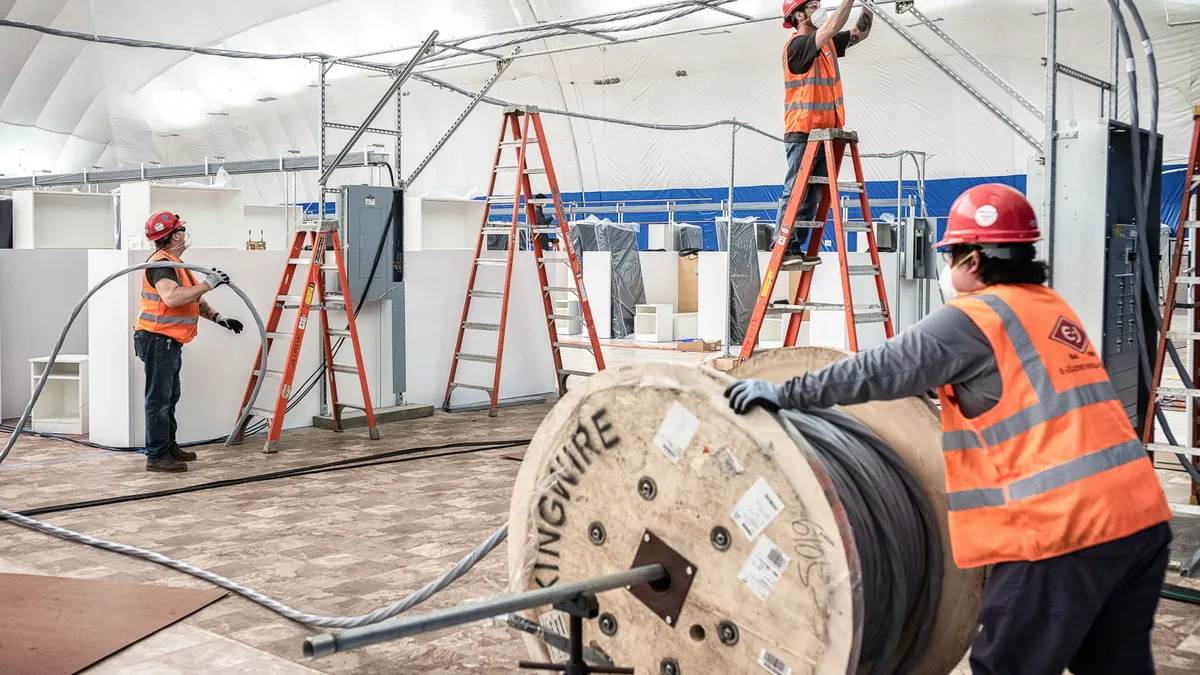The challenging labor environment is pushing trucking firms to get more creative in recruiting. Some are even trying to attract new drivers from non-CDL talent pools.
Schneider, for example, wants to focus on driver capacity, "which is part of the reason to broaden our reach into the non-CDL driver pool," CEO Mark Rourke said during an earnings call last year.
Experts say recruiting this way isn't always easy, but it leverages opportunities to reach prospective employees who might not have otherwise considered trucking.
Finding CDL potential
Commercial drivers who don't have a CDL have become the low-hanging fruit.
"Everybody's struggling and just going after any type of driver, and training them and getting them up to speed if they can," said Wendy Bartz, director of sales and services at recruiting and retention software firm DriverReach.
Pulling warehouse or dock workers into driving is not unusual for LTL companies, said Steve Sichterman, vice president of transportation-focused ConversionU at Conversion Interactive Agency.
"Traditionally that's how they got their drivers: You started as a loader or unloader, and then you moved up," he said.
But he considers it "next to impossible to recruit that way" for long-haul trucking, because so few carriers have warehouse and dock workers they can move into driving positions.
Targeting workers who just finished active-duty military service is one of the most successful strategies for recruiting non-CDL talent, Sichterman said. Trucking is "one of the few occupations that makes an effort to translate veterans' military background directly into credentials" that result in a steady civilian job, according to Veterans in Trucking.
"The schools are getting more aggressive as well about going after folks that are transitioning out of the military. I think that's probably our biggest opportunity right now," Sichterman said.
In addition to participating in military hiring events, New York-based Leonard's Express has had success recruiting students during events at high schools that are affiliated with the Boards of Cooperative Educational Services, or BOCES, a program that offers specialized vocational learning in most school districts in the state.
"Everybody's struggling and just going after any type of driver, and training them and getting them up to speed if they can."

Wendy Bartz
Director of Sales and Services at DriverReach
"We plant the seed to everyone there, because obviously there's people in BOCES that are in all different trades," said Ed Fosdick, director of recruiting at Leonard's Express. "You've got to go outside of the box with things, like … going to these schools or calling for the military. You just have to be creative."
One challenge to recruiting younger drivers is that CDL holders must be 21 years old to haul loads across state lines. But getting younger talent interested in trucking, commercially licensed and driving locally is growing in popularity. This month, New York began allowing people ages 18-20 to apply for a CDL.
In California, a school recently became one of the only non-vocational high schools in the country to offer an elective truck driving course that helps students gain knowledge of the industry and skills through hands-on training. School districts in Wisconsin and elsewhere across the country also are considering adding CDL classes at the high school level.
The FMCSA also launched a three-year pilot program to examine the feasibility and safety of allowing people ages 18-20 who operated military vehicles to operate commercial vehicles on interstates instead of waiting until they're 21. In addition to helping young military members secure civilian careers, FMCSA suggests the move "may help increase the pool of skilled, responsible commercial interstate drivers."
A pilot program for younger drivers, not related to the military, was signed into law as part of the Infrastructure Investment and Jobs Act.
Fosdick also cited success with reaching out to people who do seasonal work, such as construction, to see if they'd like to drive at least in the off season, if not year-round.
Building skills
Training requirements for non-CDL recruits varies depending on the hiring company and the recruit's previous experience. Typically, potential drivers still have to go through standard CDL schooling. However, certain experience – specifically in the military — helps fast-track the training.
FMCSA's Military Skills Test Waiver Program allows those who were in the military within the previous 12 months and have at least two years' experience safely operating heavy military vehicles to earn a CDL without taking the driving skills test. FMCSA's Even Exchange Program (Knowledge Test Waiver) lets qualified military drivers in more than a dozen states exchange a military license for a CDL.
Driver demand is so high right now that trucking companies often will pay for a new recruit's CDL schooling, Bartz said, instead of the traditional model of just paying for carrier-specific training.
"If it takes four weeks to get your CDL at a traditional driving school, the driver that's going through that is not paying anything to go to school — and they're also getting paid as employees," she said.
"You've got to go outside of the box with things."

Ed Fosdick
Director of Recruiting at Leonard's Express
Leonard's Express offers tuition reimbursement for students who go through the 160-hour CDL course. There is a driving school, Canandaigua Driving School, adjacent to their property, which is "a great place for us to meet new folks coming in and build relationships," Fosdick said.
Historically, trainees fresh out of CDL school tended to turn over more than experienced drivers, but now the rate is almost identical, he said.
"We've gotten better at looking for candidates, prepping our candidates and getting a process together to make sure that they're successful when they get here," said Fosdick.
Increasing exposure across a variety of advertising modes is key to marketing to potential employees in different fields, he said. Social media is crucial, but Leonard's Express also has used unique tactics like sponsoring a drag racing car and making their own music video.
"I think we've done a great job of understanding the new workforce, whether we talk about millennials or people getting in this industry from other industries," Fosdick said.








